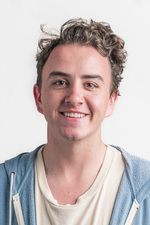In a welcome departure from programs not heavily weighted toward a specific national style, the Polish Philharmonic Orchestra Resovia had only one non-Polish composer on its October 17 program in Danville, Virginia, given in George Washington High School Auditorium. Piedmont music lovers who live along the I-85 corridor ought to sample the programs of the Danville Concert Association.
The high quality of this performance belied the orchestra’s late arrival, following a grueling eight-hour bus ride, which led to a delay in the usual starting time. The orchestra was formed in 1955 in the city of Resovia, the capital of Podkarpackie Province in southeastern Poland. Resovia is the Latinized name for Rzeszów. Music Director Tadeusz Wojciehowski has an extensive resumé of guest conducting including the Metropolitan Opera in New York. It was disappointing that the scheduled piano soloist, Leopold Godowsky III, the nephew of George Gershwin and the grandson of the legendary pianist/composer Leopold Godowsky, was unable to appear due to an injury.
The concert ended with a beautifully played Symphony No. 4 in A, Op. 90 (“Italian”), of Felix Mendelssohn. With a minimum of podium calisthenics, Wojciehowski secured very tight ensemble with alert and well sprung rhythms and a nice sense of forward drive. The strings’ uniform bowing produced a good, warm tone, the woodwinds were every bit as alert, and the brass never threatened to cover the strings.
The two 19th-century Polish works had close historical ties. Composer Karol Kurpinski (1785-1857) had conducted the world premiere of Chopin’s Piano Concerto No. 2 on March 17, 1830, in Warsaw, with the 20-year-old composer as the soloist. From Kurpinski’s 1829 opera, Kalmora (Calmora or Paternal Law of the Americas), Wojciehowski led a bubbling and lively performance of the Overture. After briefly sounding like Weber, the inventive and playful score clearly revealed the strong influence of Rossini. There were unexpected divisions of the string parts and fine solos from the flute, oboe and cello. Sometimes only the first stands of the string sections played. It is a delightful addition to the repertory.
New Zealand-born piano soloist Read Gainsford proved to be a very sensitive interpreter of Chopin’s Second Concerto. His phrasing was deeply musical and his execution of the numerous arpeggios a delight. What a pleasure it was to hear a conductor and orchestra take the composer’s score seriously, giving full value instead of a coarse generalized background accompaniment! The musicians played their native son’s score like an American orchestra might do for Gershwin or Bernstein. Wojciehowski kept a constant eye on his soloist, fitting the orchestra’s part closely. There seemed to have been a brief memory lapse or skipped passage that was quickly closed in the third movement.
The concert opened with Orawa, for string orchestra (1986), composed by Wojciech Kilar (b.1932). Described in the brief program notes as “Poland’s leading composer of symphony, oratorio and chamber music, as well as numerous (film) sound tracks,” he is best known for his scores for Francis Ford Coppola’s Bram Stoker’s Dracula and Roman Polanski’s The Pianist. This work made interesting use of repeated figures played off against one another with considerable expressive use of dynamics and rhythm. It ended with a shout from the players.
The same vitality that characterized the playing of the Mendelssohn was present in the two encores, the Allegretto from Schubert’s Symphony No. 3 and the Allegro molto finale from Beethoven’s Symphony No. 2. These works are on the other two touring programs.
The website http://www.topentertainment.com/Polish_Philharmonic_Resovia/polish_philharmonic_resovia.htm [inactive 2/04] has extensive information about the orchestra and notes for all three-tour programs. The Danville Concert Association has one of the more attractive seasons in the area with yet another orchestra from Pilsen, Czech Republic, as well as Charles Wadsworth and the Spoleto Festival USA Chamber Music Tour as highlights.











